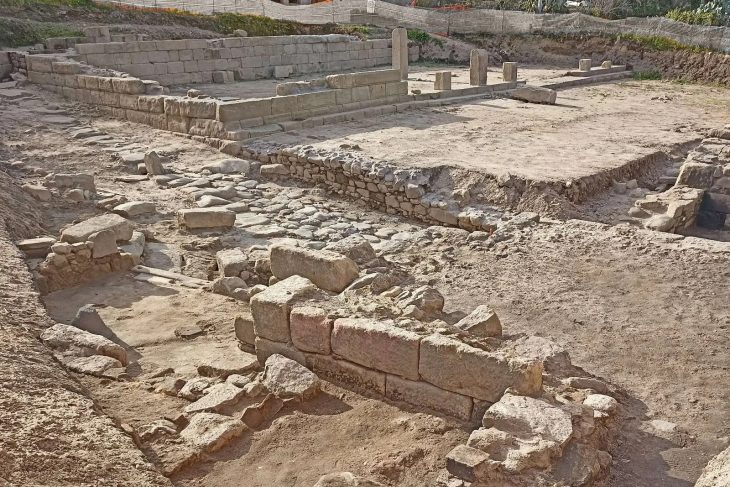In the quiet village of Tripi, nestled amid the Nebrodi and Peloritani mountains in northeastern Sicily, lies a remarkable archaeological discovery that has unveiled a piece of ancient history. Archaeologists have unearthed the ruins of an imposing stoa, a long portico, dating back to the Greco-Roman period.
These ruins, with their characteristic stone blocks and terracing, hint at the grandeur of a porticoed space typical of ancient squares or agoras. This discovery not only sheds light on the architectural prowess of the time but also confirms the existence of Abakainon, a city of ancient origins mentioned in the writings of Diodorus Siculus.
Abakainon, once a thriving city devoted to agriculture and integrated into the bustling trade routes of its era, wielded significant influence over a vast territory spanning from the Tyrrhenian Sea to the slopes of Mount Etna. The city minted its own coin, a testament to its prosperity and autonomy.
For centuries, the narrative surrounding Abakainon’s demise was one of destruction and disappearance following its alliance with Carthage and later submission to Rome. However, recent excavations and the discovery of coins challenge this narrative, prompting a reevaluation of its history.
The uncovering of Abakainon within the confines of Tripi has brought renewed attention to the village’s historical significance. Supported by the current municipal administration, excavation campaigns have provided valuable insights into the rich past of this site.
Throughout the village, traces of Abakainon’s splendor are evident, from the triumphal entrance adorned with fountains and ceramics to the bustling social hub of the old town. Urban architecture echoes the ancient city’s layout, while the castle offers panoramic views of the Aeolian Islands, standing as a silent witness to bygone eras.
Prominent necropolises, such as Contrada Cardusa, serve as poignant reminders of Abakainon’s wealth and prosperity during the late Classical and Hellenistic periods. Early excavations have unearthed treasures like gold jewelry and exquisite decorations, showcasing the opulence of its prehistoric inhabitants.
As Tripi seeks to reclaim its identity and honor its historical legacy, there are aspirations to rename the town Tripi-Abakainon through a referendum. This initiative not only aims to revive the village’s sense of pride but also seeks to foster social, economic, and cultural development for generations to come. Through the preservation and celebration of its past, Tripi looks towards a future brimming with possibilities.
